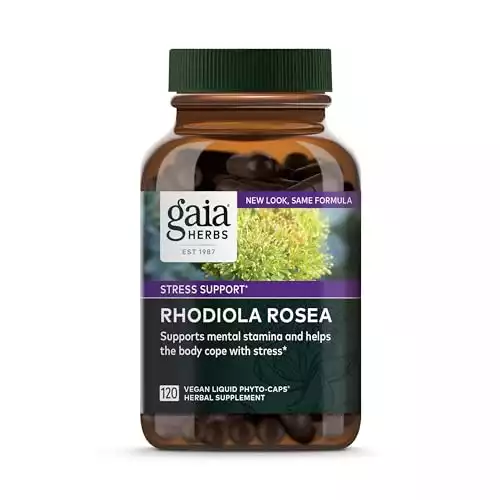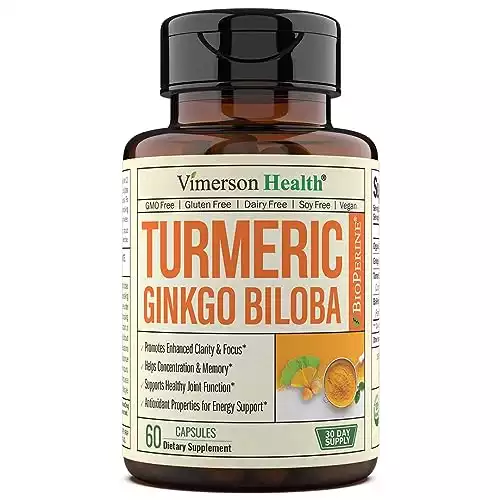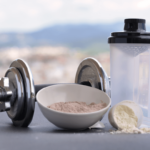Energy drinks have surged in popularity, with many reaching for a can when they need a quick energy boost. These beverages typically contain caffeine, taurine, and other ingredients, designed to increase alertness and improve concentration. However, concerns about the health impacts of such drinks have led to a growing interest in natural energy-boosting alternatives.
The typical energy drink contains high levels of caffeine, often more than a strong cup of coffee. This key component, while effective at warding off drowsiness, can lead to caffeine dependency and adverse health effects when consumed in large quantities. Alongside caffeine, these drinks often include taurine, an amino acid linked to several physiological processes.
Despite the promised benefits, the downsides to energy drinks cannot be ignored. Studies suggest that regular consumption may have negative implications for heart health. This has prompted a shift in consumer behavior, with a focus on integrating natural ingredients that offer an energy boost without the associated risks.
Jump to:
The Downside of Energy Drinks
Energy drinks have surged in popularity, but they come with potential health risks due to their high caffeine content and frequent use of sugar and artificial sweeteners. Awareness of these risks can prompt consumers to seek safer energy-boosting alternatives.
Health Risks of Common Ingredients
Caffeine: A common ingredient in energy drinks, caffeine in high amounts can lead to several side effects, including jitters, heart palpitations, and trouble sleeping. It’s not uncommon for an energy drink to contain caffeine equivalent to two or three cups of coffee.
Sugar: Many energy drinks are laden with sugar, contributing to a high calorie count which, when consumed excessively, can lead to obesity and related health issues. The Energy drinks in Germany study ties heavy consumption to negative health impacts.
Artificial Sweeteners: These are often included as a low-calorie alternative to sugar, but they are not without concern. Some studies suggest a potential link between artificial sweeteners and an increased risk of heart disease and high blood pressure.
Herbal Extracts as a Natural Alternative
Herbal extracts offer a compelling alternative to energy drinks by providing a natural, health-focused boost. These botanicals deliver energy-enhancing benefits without the side effects commonly associated with chemical stimulants.
Benefits of Rosavin and Rosariadon

Herbs such as Rhodiola rosea contain active compounds like rosavin and rosariadon, which contribute to the herb’s adaptogenic properties. Adaptogens support the body’s ability to handle stress, leading to enhanced mental clarity and physical endurance. Users can experience these benefits in the form of herbal tea or supplements, which serve as a natural approach to stress management and energy improvement (Bhandwale, 2021).
- Antioxidants: Rhodiola extract is rich in antioxidants, which help protect the body against free radicals and oxidative stress.
- Energy-Boosting: Unlike the temporary rush and subsequent crash associated with energy drinks, Rhodiola’s effects contribute to sustained energy throughout the day.
Supports a physically active lifestyle by helping to fortify the body
Herbs vs. Chemical Stimulants
Herbal extracts distinguish themselves from chemical stimulants by offering energy enhancement aligned with the body’s natural rhythms. Instead of providing an immediate jolt often followed by a crash, herbs support sustained energy levels through their natural compounds (Nimbhorkar, Rasane, & Singh, 2021).
Support Brain Health and Enhance Cognitive Function, so you can Stay Sharp, Focused, and Mentally Alert throughout the day.
According to this research, a composition comprising kudzu and ginkgo biloba extract can be used as a potential replacement for caffeine. This extract contains flavoglycosides and terpene lactones from ginkgo biloba, along with standardized puerarin extracted from kudzu roots.
Natural Energy Drinks
Natural energy drinks are gaining popularity as they offer a boost without the use of artificial stimulants. These beverages typically rely on ingredients like juice, green tea, and coconut water to provide a source of energy. (Oyelowo, Awosika, & Taiwo, 2022).
Alternatives to Traditional Energy Drinks
Green Tea: A popular alternative, green tea contains natural caffeine and is rich in antioxidants. It can provide a gentle increase in energy levels, without the excessive amounts of glucose and artificial ingredients found in traditional energy drinks.
Coconut Water: This natural beverage is a hydrating option with a low-calorie count. It contains electrolytes and provides a moderate amount of natural sugar that can help to replenish energy stores, making it a healthier option compared to high-glucose energy drinks.
Comparative Health Impacts
The health benefits of natural energy drinks are often linked to their ingredients. For example, juices made from whole fruits can contain vitamins and minerals beneficial for overall health. Meanwhile, traditional energy drinks may lead to health issues due to high caffeine and sugar content.
Health Benefits:
- Juices: Provide vitamins and antioxidants without artificial additives.
- Green Tea: Offers metabolic benefits and improves mental focus.
In contrast, traditional energy drinks can have a negative impact on health, potentially causing increased heart rate and high blood pressure. Natural alternatives deliver energy through sustainable, whole food sources and are generally considered a more health-conscious choice.
Functional Beverages: A Novel Approach
The shift toward natural energy-boosting alternatives is leading to a growing interest in functional beverages. These drinks are enhanced with health-promoting ingredients like amino acids, vitamins, minerals, and probiotics to offer more than just hydration.
Defining Novel Functional Beverages
Novel functional beverages are designed to provide health benefits beyond basic nutrition. They are fortified with amino acids which can aid in muscle recovery and improve mental focus. Enhanced with essential vitamins and minerals, these drinks support overall health and can contribute to enhanced energy metabolism. The inclusion of probiotics in functional beverages is a recent advancement, aiming to boost gut health and immunity. The evolution of functional beverages marks a pivot from traditional energy drinks, which primarily rely on caffeine and sugar for an energy boost.
Safety and Stability Considerations
When formulating these enhanced drinks, safety and stability are paramount. Each functional ingredient must be carefully considered for its bioavailability and how it might interact with other components of the drink. For example, certain vitamins can degrade over time or when exposed to light or heat, so protective packaging and precise manufacturing processes are crucial. Additionally, manufacturers must ensure that their ingredients are within the recommended dietary guidelines and safe for consumption over typical usage patterns to avoid adverse effects. This level of scrutiny and adherence to regulations safeguards consumer health while fostering trust in functional beverages as a reliable source of natural energy.
Dietary Considerations and Nutritional Benefits

Making informed dietary choices can significantly affect energy levels and overall health. This section explores the relationship between diet and energy and the nutritional benefits of integrating whole foods into one’s daily intake.
Impact of Diet on Energy Levels
The foods consumed can play a pivotal role in determining energy levels throughout the day. Diets high in protein and fiber contribute to sustained energy by providing the body with a steady release of nutrients. Foods such as lean meats, beans, and whole grains are excellent sources of these macronutrients. Hydration also plays an essential role in maintaining energy, as water is vital for the body’s metabolic processes. Consuming foods with high water content or ensuring adequate fluid intake can help optimize energy levels.
Benefits of Whole Foods
Incorporating whole foods into the diet brings numerous health benefits, primarily due to their nutrient density. These foods are often rich in essential vitamins and potassium, which are crucial for cellular function and energy production. Choosing natural and organic whole foods when possible limits the intake of added chemicals and processed substances that can detract from overall wellness. By prioritizing these nutrient-rich foods, individuals can benefit from the natural energy-boosting properties they offer, while also supporting long-term health.
Lifestyle and Natural Boosters
Incorporating simple lifestyle changes can significantly enhance one’s vitality. Optimal hydration and regular physical activity are pivotal for maintaining high energy levels.
Exercise and Energy
Regular physical activity is a potent energy booster. It enhances cardiovascular health, which improves endurance and overall energy levels. A study showcased engaging in regular exercise leads to increased endorphin levels, which can elevate mood and energy. Even moderate walking or cycling can improve one’s energy state by promoting better sleep and reducing fatigue.
Hydration and Energy Levels
The body’s hydration status is closely tied to its energy levels and concentration abilities. Studies confirm that even mild dehydration can impair cognitive functions, focus, and mood. It’s recommended that individuals drink sufficient water each day—typically 8-10 glasses—to avoid the draining effects of dehydration on energy and alertness. Additionally, hydrating before, during, and after exercise helps maintain optimal performance and energy conservation.
Consumer Safety and Regulatory Standards
Consumer protection and adherence to stringent regulatory standards are paramount when considering the shift from energy drinks to natural alternatives. This ensures products are not only effective but also safe for consumption.
Role of Government Agencies
The Food and Drug Administration (FDA) plays a pivotal role in the oversight of beverages and supplements, overseeing the safety, manufacturing, and labeling of these products. The FDA’s regulation covers a broad spectrum, ensuring that energy drinks and their natural alternatives do not contain substances that may cause health issues. Inspections conducted by the FDA are crucial in maintaining compliance with these regulatory standards, ensuring that companies adhere to Good Manufacturing Practices (GMP).
The U.S. Department of Agriculture (USDA) complements these efforts by monitoring food products that intersect with the agricultural sector. They focus on the quality and safety of food items, including ingredients commonly found in natural energy boosters, such as plant extracts and whole foods. Through their regulatory activities, the USDA ensures that products contributing to energy levels, like those touted as natural alternatives to energy drinks, meet federal standards for consumption.
Understanding Food Labels
Consumers rely on food labels to make informed decisions about the products they consume, which include warnings, nutritional content, and ingredients. Italic Instituted federal requirements ensure that labels provide clear and direct information about any potential health issues associated with the consumption of food and beverages. The nutritional facts panel, regulated by the FDA, must accurately reflect the contents of the product, including those that claim to offer energy-boosting properties.
Furthermore, claims on food labels such as “natural,” “organic,” or “energy-boosting” are scrutinized under these regulations to prevent misleading the consumer. This protects individuals by ensuring that the actual benefits and ingredients of the products align with the expectations set by their labeling, which is vital when considering alternatives to traditional energy drinks.
Next Steps
For readers interested in everyday strategies for energy enhancement, the book Everyday Energy Boosters offers a year’s worth of tips and tricks. The content ranges from meditation practices to dietary recommendations, centering on natural ways to maintain energy.
Another significant contribution to the discussion is found in The All-day Energy Diet, which juxtaposes natural dietary choices with the typical reliance on caffeinated beverages. The emphasis here is on sustainable, natural energy sources, an essential read for those aiming to double their energy levels without artificial stimulants.

















